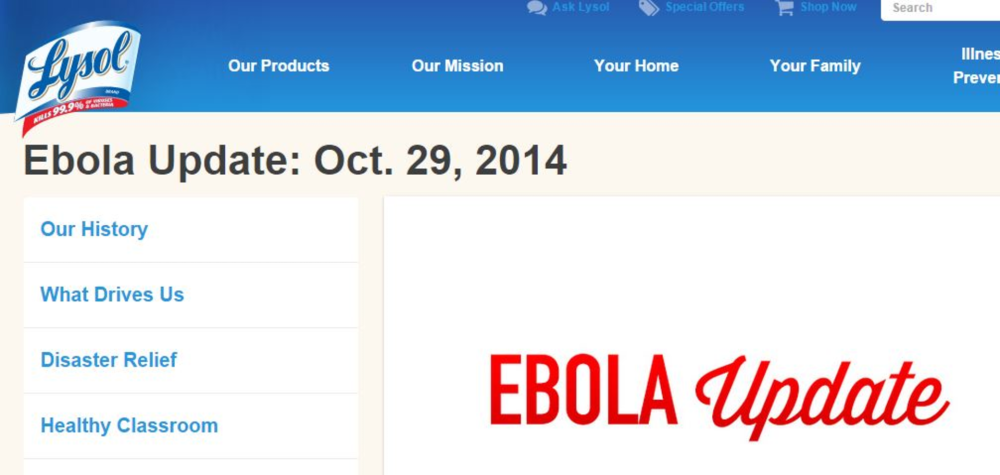Yesterday, VICE reported that a link to Lysol’s website was the top result for a Google search of the word “Ebola.” That means Lysol went out and bought the right to show a sponsored link to its website anytime someone typed in the word “Ebola” in a Google search. (Link to screen grab here.)
To be fair, Lysol’s page did contain information about the disease, with a link to the Center for Disease Control website. But shouldn’t the CDC link be the first result in Google returns? This is one of those times where Google needs to evaluate who is buying search terms, and how relevant they are. Because Lysol’s relationship to Ebola isn’t on the firmest ground.
Even though it makes widely known disinfectants and cleaning products, there’s no evidence that Lysol is being recommended as a protection against the Ebola virus, especially among regular consumers. While it makes sense for Lysol to be used in hospitals and other sterile environments, it would be wrong to assume that it prevents the spread of Ebola, since the virus is spread from person-to-person contact, and not from touching the hard, non-porous surfaces Lysol is used to clean.
Here’s the only explanation Lysol had on its website:
Based on this guidance, products that meet the following criteria are likely to kill the Ebola virus.
1. The product meets the CDC criteria for disinfectant products with label claims for a non-enveloped virus;
2. The product is intended for use on hard, non-porous surfaces; and,
3. The product label use instructions for the non-enveloped virus or viruses should be followed.
Lysol products have not specifically been tested against the Ebola virus but the products here meet the criteria established by the CDC and EPA.
Even though there might be a possible, if tenuous case for using Lysol to prevent the spread of a virus, it’s in bad taste for it to pay for an advertisement, making it seem like Lysol’s exploiting a tragic epidemic. Is there much difference between this and if Lysol started tweeting links to its website with an #Ebola hashtag?
It appears Lysol has since taken the ad down, but the fact remains that Google, despite all its purported vigilance can still be responsible for spreading the wrong information, especially if someone pays for it.








